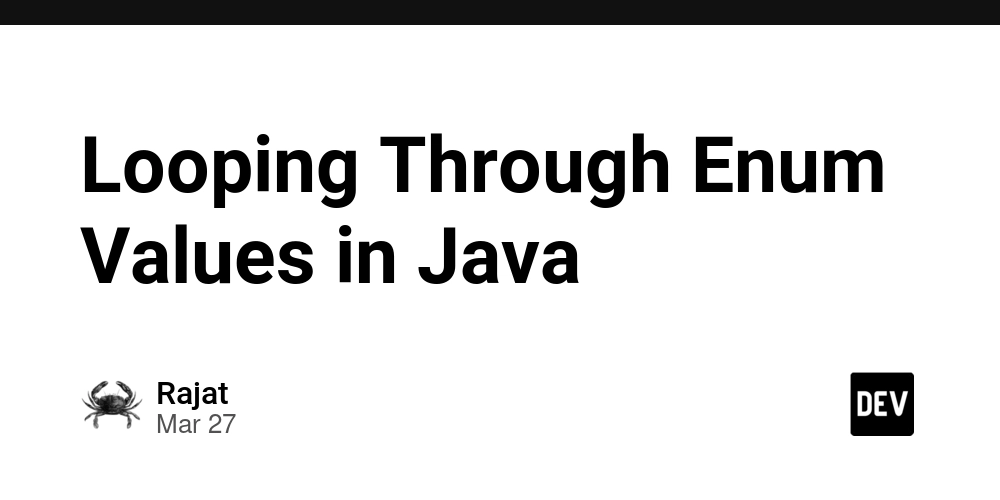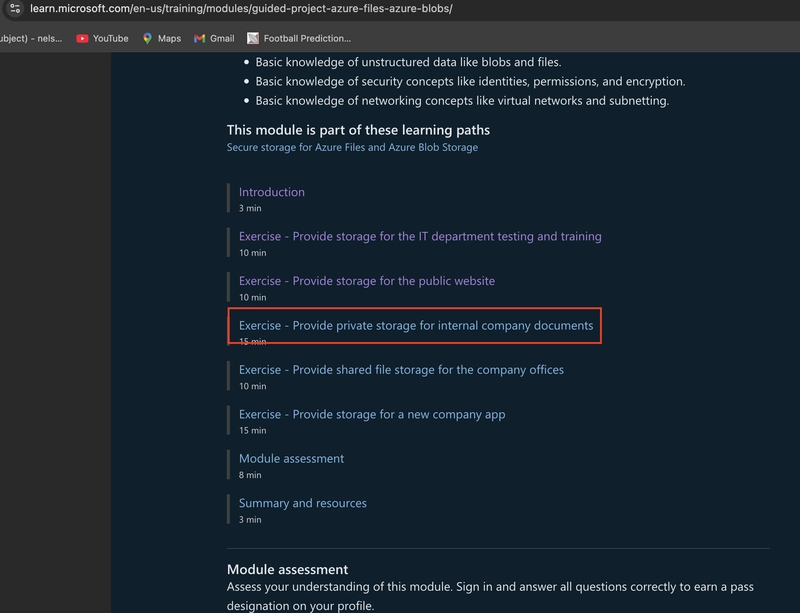Looping Through Enum Values in Java
In the world of Java programming, enums, or enumerated types, are a powerful feature that allows developers to define a set of named constants. They are particularly useful for representing fixed collections of related constants, such as days of the week, months of the year, directions, status codes, and more. Enums not only provide a type-safe way of handling constants but also come with built-in methods that make them versatile and easy to work with. One of the most common tasks when working with enums is iterating through all the possible values of an enum, which is often required when you need to perform operations on each value. This blog will explore the concept of enums in Java, why and how you might loop through enum values, and various techniques to achieve this efficiently. What are Enums in Java? Before diving into the specifics of looping through enum values, it's essential to understand what an enum is and why it is useful in Java. An enum in Java is a special data type that represents a collection of constants. For example, you might create an enum to represent the days of the week, the directions of a compass, or even different levels of a game. Enums are more than just simple constants—they are full-fledged objects in Java. They can have fields, methods, and constructors, just like other classes. This makes enums a powerful feature for organizing related constants in a clean, type-safe manner. For example, an enum representing the days of the week might have methods that return whether a particular day is a weekend or a weekday. Why Loop Through Enum Values? Looping through enum values is an essential skill in Java, as it allows developers to perform operations on each constant defined in the enum. There are several reasons why you might need to loop through enum values: Displaying Enum Values: If you want to display a list of all the constants in an enum, iterating over them is the most straightforward way. Processing Enum Values: You may need to apply logic to each value of the enum, such as checking if each day is a workday or weekend, or if each month falls into a certain season. Populating User Interfaces: If you are building a user interface (UI), you might want to present enum values as options in a dropdown menu or populate a table with enum constants. Performing Actions Based on Enum Values: Sometimes, the behavior of an application depends on the value of an enum, and you need to execute specific code for each constant. For example, in an application that tracks customer orders, you might have an enum representing the different order statuses such as "Pending," "Shipped," "Delivered," and "Canceled." By looping through these statuses, you could generate reports, send notifications, or apply different logic based on each status. How to Loop Through Enum Values in Java Java provides several built-in features that make looping through enum values easy and efficient. The most common and recommended approach is to use the built-in method that every enum type in Java provides, called values(). This method returns an array of all the constants defined in the enum, allowing you to loop through them using various loop constructs. Using For-Each Loop One of the simplest and most readable ways to loop through enum values is by using a for-each loop. This loop allows you to iterate through the enum constants without needing to explicitly manage an index or array. The for-each loop automatically iterates over each constant in the enum, providing a clean and concise way to process each value. The beauty of the for-each loop is its simplicity—it makes the code easy to read and understand, which is especially important when working on large projects or collaborating with others. Using Regular For Loop While the for-each loop is often the preferred option for its simplicity, a regular for loop can also be used to loop through enum values. A regular for loop might be useful in cases where you need more control over the loop, such as accessing the index of each value or manipulating the loop behavior. A regular for loop works by using the values() method to retrieve an array of enum constants and then accessing each value through its index. This approach can be helpful if, for instance, you need to loop through a subset of enum values or perform operations based on the index of each value. Using Iterator In some cases, when you are working with a collection or need to use more advanced functionality, an iterator may be beneficial. An iterator allows you to loop through enum values while providing additional control over the iteration process, such as removing elements during the iteration. This approach is less common for simple looping but might come in handy when working with complex collections or managing the iteration process in a more granular way. Best Practices for Looping Through Enum Values While loo

In the world of Java programming, enums, or enumerated types, are a powerful feature that allows developers to define a set of named constants. They are particularly useful for representing fixed collections of related constants, such as days of the week, months of the year, directions, status codes, and more. Enums not only provide a type-safe way of handling constants but also come with built-in methods that make them versatile and easy to work with. One of the most common tasks when working with enums is iterating through all the possible values of an enum, which is often required when you need to perform operations on each value.
This blog will explore the concept of enums in Java, why and how you might loop through enum values, and various techniques to achieve this efficiently.
What are Enums in Java?
Before diving into the specifics of looping through enum values, it's essential to understand what an enum is and why it is useful in Java. An enum in Java is a special data type that represents a collection of constants. For example, you might create an enum to represent the days of the week, the directions of a compass, or even different levels of a game.
Enums are more than just simple constants—they are full-fledged objects in Java. They can have fields, methods, and constructors, just like other classes. This makes enums a powerful feature for organizing related constants in a clean, type-safe manner. For example, an enum representing the days of the week might have methods that return whether a particular day is a weekend or a weekday.
Why Loop Through Enum Values?
Looping through enum values is an essential skill in Java, as it allows developers to perform operations on each constant defined in the enum. There are several reasons why you might need to loop through enum values:
Displaying Enum Values: If you want to display a list of all the constants in an enum, iterating over them is the most straightforward way.
Processing Enum Values: You may need to apply logic to each value of the enum, such as checking if each day is a workday or weekend, or if each month falls into a certain season.
Populating User Interfaces: If you are building a user interface (UI), you might want to present enum values as options in a dropdown menu or populate a table with enum constants.
Performing Actions Based on Enum Values: Sometimes, the behavior of an application depends on the value of an enum, and you need to execute specific code for each constant.
For example, in an application that tracks customer orders, you might have an enum representing the different order statuses such as "Pending," "Shipped," "Delivered," and "Canceled." By looping through these statuses, you could generate reports, send notifications, or apply different logic based on each status.
How to Loop Through Enum Values in Java
Java provides several built-in features that make looping through enum values easy and efficient. The most common and recommended approach is to use the built-in method that every enum type in Java provides, called values(). This method returns an array of all the constants defined in the enum, allowing you to loop through them using various loop constructs.
Using For-Each Loop
One of the simplest and most readable ways to loop through enum values is by using a for-each loop. This loop allows you to iterate through the enum constants without needing to explicitly manage an index or array.
The for-each loop automatically iterates over each constant in the enum, providing a clean and concise way to process each value. The beauty of the for-each loop is its simplicity—it makes the code easy to read and understand, which is especially important when working on large projects or collaborating with others.
Using Regular For Loop
While the for-each loop is often the preferred option for its simplicity, a regular for loop can also be used to loop through enum values. A regular for loop might be useful in cases where you need more control over the loop, such as accessing the index of each value or manipulating the loop behavior.
A regular for loop works by using the values() method to retrieve an array of enum constants and then accessing each value through its index. This approach can be helpful if, for instance, you need to loop through a subset of enum values or perform operations based on the index of each value.
Using Iterator
In some cases, when you are working with a collection or need to use more advanced functionality, an iterator may be beneficial. An iterator allows you to loop through enum values while providing additional control over the iteration process, such as removing elements during the iteration. This approach is less common for simple looping but might come in handy when working with complex collections or managing the iteration process in a more granular way.
Best Practices for Looping Through Enum Values
While looping through enum values in Java is straightforward, there are some best practices that can make your code cleaner, more efficient, and easier to maintain. Here are a few tips to keep in mind:
Avoid Hardcoding Values: When working with enums, try to avoid hardcoding the enum values into your loops. Instead, use the
values()method, which ensures that your code remains flexible and can handle changes to the enum without requiring manual updates.Consider Enum Types with Behavior: Enums in Java are more than just simple constants—they can also have methods and fields. If your enum contains methods or behaviors, consider whether looping through the enum is necessary for your specific use case, or if invoking methods on individual enum constants could achieve your goal more effectively.
Handle Null and Edge Cases: In some cases, it may be important to consider null or unexpected enum values when looping. Always check that the enum you are working with is valid before performing any operations.
Use Enum for Grouped Constants: Enums are most effective when they are used to group related constants together. They are not intended for arbitrary collections of values. Use enums to model concepts that are fixed and predefined, such as days of the week, states in a process, or predefined levels of access.
Advanced Topics
For more advanced use cases, you might want to extend the capabilities of your enums. Java allows you to add custom fields and methods to enums, enabling more sophisticated functionality. For example, you could add a method that returns a description or additional properties for each constant.
You might also combine enums with design patterns such as the Strategy Pattern or Factory Pattern, where the enum values could represent different strategies or product configurations. These patterns allow you to encapsulate different behaviors or configurations within your enum, making the code more flexible and easier to maintain.
Performance Considerations
While looping through enum values is generally efficient, there are situations where performance becomes a concern. If your enum contains a large number of values or you need to iterate through it frequently, consider caching the result of the enum lookup to improve performance. However, for most typical applications, the overhead of looping through enums is minimal and doesn't require significant optimization.
Conclusion
Looping through enum values in Java is a simple yet powerful technique that is often used in a wide variety of applications. Enums provide a clean, type-safe way of handling related constants, and Java offers several methods for iterating over them efficiently. By understanding the different looping techniques and following best practices, you can leverage enums to write more robust, maintainable, and flexible code. Whether you’re building user interfaces, processing status codes, or applying business logic, knowing how to loop through enum values is an essential skill that every Java developer should master.











































































































































































![[The AI Show Episode 142]: ChatGPT’s New Image Generator, Studio Ghibli Craze and Backlash, Gemini 2.5, OpenAI Academy, 4o Updates, Vibe Marketing & xAI Acquires X](https://www.marketingaiinstitute.com/hubfs/ep%20142%20cover.png)




























































































































![[DEALS] The Premium Learn to Code Certification Bundle (97% off) & Other Deals Up To 98% Off – Offers End Soon!](https://www.javacodegeeks.com/wp-content/uploads/2012/12/jcg-logo.jpg)


![From drop-out to software architect with Jason Lengstorf [Podcast #167]](https://cdn.hashnode.com/res/hashnode/image/upload/v1743796461357/f3d19cd7-e6f5-4d7c-8bfc-eb974bc8da68.png?#)








































































































.png?#)























.webp?#)










_Christophe_Coat_Alamy.jpg?#)
 (1).webp?#)




































































































![Apple Considers Delaying Smart Home Hub Until 2026 [Gurman]](https://www.iclarified.com/images/news/96946/96946/96946-640.jpg)
![iPhone 17 Pro Won't Feature Two-Toned Back [Gurman]](https://www.iclarified.com/images/news/96944/96944/96944-640.jpg)
![Tariffs Threaten Apple's $999 iPhone Price Point in the U.S. [Gurman]](https://www.iclarified.com/images/news/96943/96943/96943-640.jpg)



































































































































